The idea of designating the Muslim Brotherhood as a foreign terrorist organization has been kicking around a long time and is part of a larger enthusiasm, which President Trump shares, for a kind of civilizational battle against “radical Islam,” write Will McCants and Ben Wittes. The trouble is, such a designation would be illegal. This post originally appeared on Lawfare.
Certain segments of the American Right have long been spoiling to designate the Muslim Brotherhood as a foreign terrorist organization under the material support statute. And now that Donald Trump is president, talk of designating the Brotherhood is heating up. Senator Ted Cruz reintroduced a bill early this year that would require the Secretary of State to report to Congress on “whether the Muslim Brotherhood meets the criteria for designation as a foreign terrorist organization” and, if not, would include “a detailed justification as to which criteria have not been met.”
More recently, the New York Times reported the other day that President Trump is contemplating an executive order that “would direct the secretary of state to determine whether to designate the Muslim Brotherhood a foreign terrorist organization. That designation has been sought by Egypt and the United Arab Emirates.”
The idea of designating the Brotherhood has been kicking around a long time and is part of a larger enthusiasm, which Trump certainly shares, for a kind of civilizational battle against “radical Islam.” Trump’s idea has lots of detractors. Writing in the Wall Street Journal, Yaroslav Trofimov worries that “Blacklisting the Brotherhood has several pitfalls,” mostly related to the fact that the group “still retains millions of supporters. Outlawing the Brotherhood could complicate U.S. relations with critical allies in the region,” he writes—most notably Turkey.
Nathan Brown and Michele Dunne likewise warn that a designation is:
more likely to undermine than achieve its ostensible purpose and could result in collateral damage affecting other U.S. policy goals. The greatest damage might be in the realm of public diplomacy, as using a broad brush to paint all Muslim Brotherhood organizations as terrorists would be understood by many Muslims around the world as a declaration of war against non-violent political Islamists—and indeed against Islam itself.
But there’s at least one other reason why Trump should stay his hand on a Brotherhood designation: It would be illegal.
The Brotherhood as a whole, in several different respects, does not meet the criteria for designation under the statute. That’s why, despite pressure from governments like Egypt and the UAE over a protracted period of time, it has not been designated to date under any of the previous three administrations. Barring a change in statute that would almost certainly render the material support law unconstitutional, a designation, notwithstanding the ferment for it, would not be lawful today either, even under a Trump administration.
Let’s start with the criteria for designation under 8 U.S.C. § 1189(a), which reads as follows:
(1) In general, The Secretary [of State] is authorized to designate an organization as a foreign terrorist organization in accordance with this subsection if the Secretary finds that—
(A) the organization is a foreign organization;
(B) the organization engages in terrorist activity (as defined in section 1182(a)(3)(B) of this title or terrorism (as defined in section 2656f(d)(2) of title 22), or retains the capability and intent to engage in terrorist activity or terrorism); and
(C) the terrorist activity or terrorism of the organization threatens the security of United States nationals or the national security of the United States.
The secretary is required to publish the designation in the Federal Register, though consideration of classified material is permitted and need not be disclosed. Moreover, the designated organization is entitled to judicial review of the designation in the DC Circuit Court of Appeals, and a designation can be thrown out if is arbitrary or capricious or if the administrative record does not support it. In the case of one designated group, litigation over the designation went on for years. There’s no reason to think the D.C. Circuit would simply roll over for a plainly deficient record.
So let’s ask the key questions: Is the Muslim Brotherhood (1) a foreign organization that (2) engages in terrorist activity or retains the capability and intent to do so and (3) whose terrorism threatens the United States or its people?
The short answer is that the Brotherhood is not in a meaningful sense a single organization at all; elements of it can be designated and have been designated, and other elements certainly cannot be. As a whole, it is simply too diffuse and diverse to characterize. And it certainly cannot be said as a whole to engage in terrorism that threatens the United States.
The Muslim Brotherhood was founded in Egypt in 1928. Today, the group has chapters in dozens of countries that are nominally coordinated by an international organization helmed by the Supreme Guide of Egypt’s Brotherhood. It is difficult to assess the strength of the ties between the international organization and the various Brotherhood chapters, because of the organization’s penchant for secrecy. The Brotherhood in Egyptian is especially secretive because it operated underground for many years as a result of government suppression, which produced a cult-like organization. Where Brotherhood chapters have been allowed to operate more openly, there is more transparency.
From the available evidence, it seems the international organization (al-tanzim al-`alami or al-tanzim al-dawli) is unable to coerce its members or even set their agendas. Although every Brotherhood chapter wants their local governments to implement Islamic law, they have very different policies as to how that should be accomplished and they frequently disagree with one another. Sometimes these disagreements lead Brotherhood chapters to leave the international organization, as Kuwait’s Brotherhood did after the body supported Saddam’s occupation of their country. As one of America’s foremost scholars of the Muslim Brotherhood has written, the group’s international organization “most closely resembles today’s Socialist International: a tame framework for a group of loosely linked, ideologically similar movements that recognize each other, swap stories and experiences in occasional meetings, and happily subscribe to a formally international ideology without giving it much priority.”
Chapters of the Brotherhood have sometimes engaged in terrorism and other forms of political violence. The Syrian Muslim Brotherhood fought an insurgency against the Syrian government in the late 1970s and early 1980s. The Palestinian Muslim Brotherhood, represented by Hamas, routinely uses terror tactics against Israel, which is why it is designated as a foreign terrorist organization by the U.S. Department of State. The Egyptian Brotherhood conducted terror attacks against the Egyptian government in the 1940s, 50s, and 60s until its second leader forbade revolutionary violence. That prohibition held even after the overthrow of President Mohamed Morsi, a Muslim Brother, in 2013 and the subsequent massacre of nearly 1,000 Muslim Brother protestors at the Rabaa mosque. The leaders of the organization today continue to call for peaceful protest, even though some of its younger members have attacked private property and government targets, and Brotherhood members appear to be behind a fair bit of violence against Coptic Christians. According to credible, publicly-available evidence, the organization turns a blind eye to these attacks, but it does not orchestrate or call for them. (Some analysts even doubt whether the leadership of the Egyptian Brotherhood is even in control anymore after the mass arrests of its upper echelons.) Such unsanctioned violence, even if winked at, does not meet the threshold for a terrorist designation, which requires that the organization as such engages in terrorism or retains the intent to do so.
And indeed, as Reuters reported, “A U.S. official who declined to be identified told Reuters there had been discussions at the State Department which looked at intelligence and information on the group in which it was thought ‘it would be difficult to justify legally, in terms of the Egyptian Muslim Brotherhood, to meet the criteria.’”
Other Brotherhood chapters have not been so antagonistic toward their local rulers, especially in countries where they have been allowed to participate in electoral politics. Brotherhood parties have fielded candidates and hold seats in parliament in several countries, like Kuwait, Bahrain, Jordan, Yemen, and Israel. The vice president of Iraq during the American occupation was also a Brotherhood member. And the Brotherhood-associated party in Morocco led the last government and is slated to lead the next one. As is true with Hizballah ministers and parliament members in Lebanon, an terrorist designation of the Brotherhood would thus forbid the U.S. government from engaging with foreign officials who hail from these parties; this could severely constrain U.S. government partnership with the Moroccan government, which is a major counterterrorism partner.
One of the present authors met not too long ago with the spiritual leader of the Brotherhood in Israel and wrote about the meeting as follows:
Sheikh Darwish is a fascinating man, and his movement is a fascinating movement. It is a recognizably democratic actor in a functioning democratic political system. Its commitment to acting within the law and within that system is sincere and long-standing. Indeed, since his time in prison, Darwish has consistently renounced violence, and he started a political movement that runs candidates for municipal and national Israeli office. The more radical wing of the movement broke off because he’s too much of a squish. Running candidates who serve in the Knesset, after all, legitimizes Israel, they reason, and Darwish—unlike the more radical branch of the Islamic Movement—does not defend Hamas.
But what most fascinates me about Sheikh Darwish is his articulation of what I think is the single most eloquent and constructive formulation I have ever heard of the relationship between a Palestinian Arab, Muslim citizen of the Israeli state and the state in which he lives—a state that, after all, purports to be a Jewish state. He instructs his followers, he told us, to engage the Israeli state on the following basis: “I am a human being. I am a Muslim human being. I am an Arab human being, living on my land in the State of Israel. I do not violate its laws. I do not denigrate any of its citizens.”
Today, only a handful of countries designate the Brotherhood a terrorist organization tout court, including Egypt, Saudi Arabia, UAE, Russia, and Syria. Many more countries designate local chapters of the Brotherhood terrorist organizations when they engage in terrorism, as has been the case with Hamas.
[T]hat designation should be confined to the chapter engaging in violence.
We would never argue that designating a Brotherhood segment is inappropriate. Far from it. If the U.S. government obtains credible evidence that the Egyptian Brotherhood organization, for example, is ordering its members to engage in terrorism, then it should be designated a foreign terrorist organization. But that designation should be confined to the chapter engaging in violence and not extended to the other Brotherhood entities elsewhere in the world that might have nothing to do with terrorism.
If credible evidence of terrorist activity is not forthcoming, it would quite simply be illegal for the United States to designate the Brotherhood on purely ideological grounds. To be sure, the Egyptian Brotherhood pursues an illiberal agenda in a democratic framework, but that is not a lawless act. Criminalizing the group for a set of ideas, by contrast, would be a lawless act.
When the Supreme Court upheld the material support law in 2010, it did so on the explicit understanding that the statute did not criminalize affiliations with political movements but, rather, held the statute to be constitutional because money is fungible. Giving “material support” to a foreign terrorist group effectively funds terrorism, even if you give it to support some benign activity of the group, because your contribution frees up money and resources to support violence. This simply isn’t true of the Brotherhood; if you give money to, for example, Sheikh Darwish’s parliamentary party in Israel, no funds will be freed up to support terrorism, because his group doesn’t do terrorism and it isn’t economically linked to groups that do. So the very premise under which the court upheld the law would not be true—and you’d in fact be criminalizing material support to disfavored ideas.
Here’s a dirty little secret: the U.S. government hasn’t been wildly under-designating foreign terrorist groups over the past two administrations. If a group isn’t designated, it’s probably not because the last president, and the one before that, were surrounded cabals of Brotherhood sympathizers. The simpler explanation is closer to the truth: the law won’t support the action Trump and his supporters are itching to take.
The Brookings Institution is committed to quality, independence, and impact.
We are supported by a diverse array of funders. In line with our values and policies, each Brookings publication represents the sole views of its author(s).

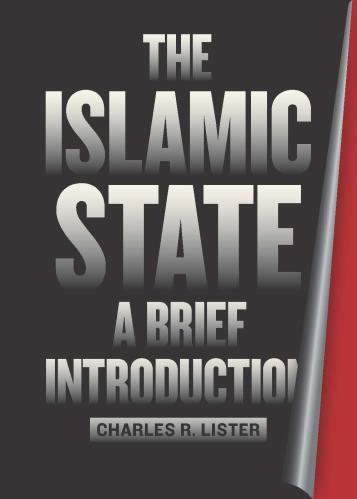
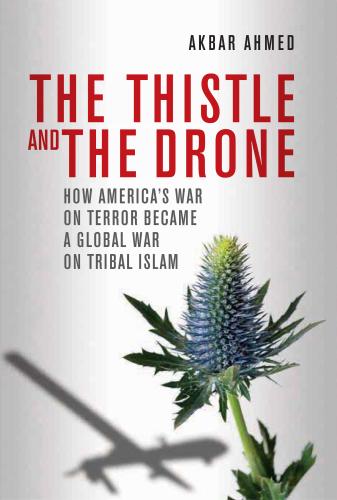
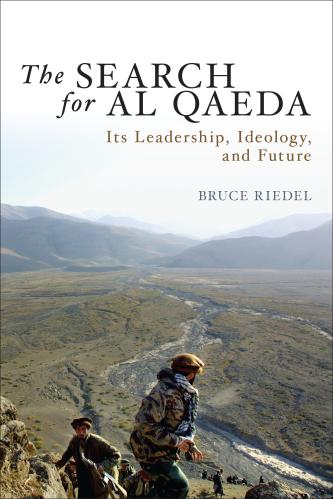
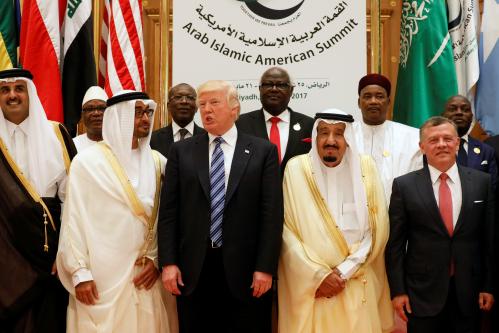
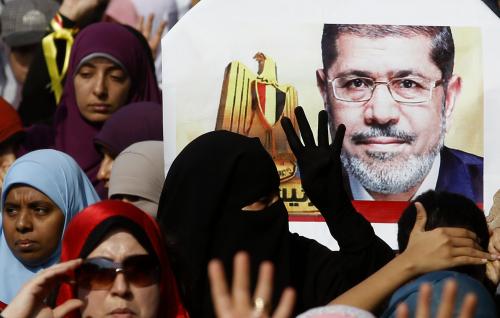
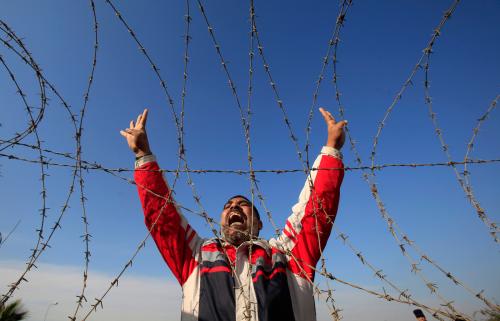





Commentary
Should the Muslim Brotherhood be designated a terrorist organization?
January 30, 2017